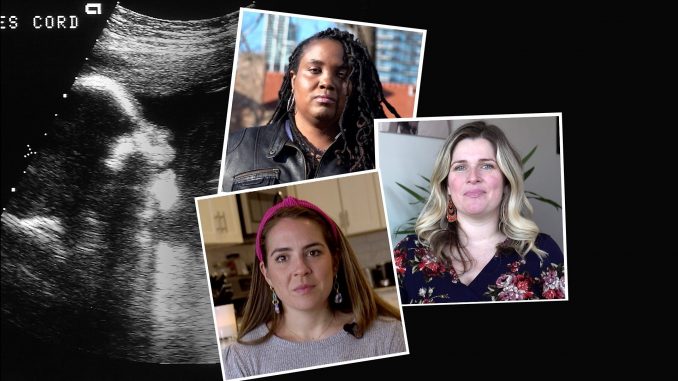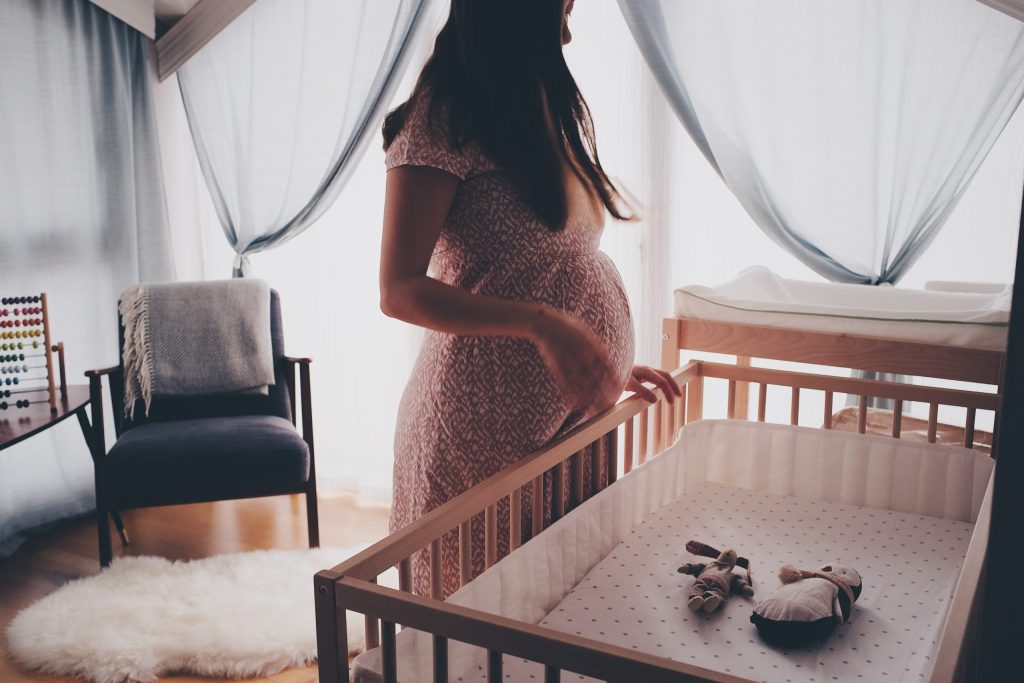
In the US, one in eight couples experience infertility. But a culture of silence and stigma means most people suffer alone.

Video Transcript
– In about seven and a half weeks, we miscarried, and at that point, I’m going to be honest. I wasn’t sad. I went straight to anger and resentment. I needed to understand what was happening with my body.
– If you grew up always wanting children, always feeling like that was your purpose, and then you find out that that’s not something that you’re able to do in the traditional sense, you really start to question, who am I?
– Infertility is all consuming. When you’re going through it, there is nothing else you can think about. It kind of takes over your whole being.
KASIA MCGUIRE: When my husband Sean and I first started trying, we just thought, this is going to be fun. We’re just going to have fun with this.
KRISTYN HODGDON: We’re taught as young women that, you know, you have sex, and you get pregnant. And don’t do that. So when you actually decide, I’m going to come off the pill, it feels monumental. Like, if I have sex, I’m going to get pregnant, and we’re going to start a family.
– The biggest myth is that it’s easy, that having kids is just something that you can just naturally do when, in fact, one in eight couples experience fertility issues.
– We tried naturally, unmedicated, timed cycles for a year and a half. It was just still like, well, why the heck isn’t this happening for us? Like, what’s wrong with us?
– We actually found that both of my fallopian tubes were completely blocked and that all of those other medications I had been taking would have never worked, because there was no way for sperm to meet egg.
– I didn’t want to have to go through any more miscarriages. At that point, we had gone through three. It was devastating and heartbreaking, and it was just– you know, you want answers.
– I had no idea what was going on. I went to my OB-GYN, and she actually diagnosed me with polycystic ovarian syndrome, commonly referred to as PCOS.
– I end up going into surgery. It’s supposed to take anywhere from 15 minutes to an hour and a half maybe. I woke up six and a half hours later without a left fallopian tube. So I did find out. I had stage four endometriosis, that that was probably what was causing all of the miscarriages.
– It was just assumed that you would have kids if you wanted them.
– People don’t know you’re going through that, so you’re going through it in silence. You’re embarrassed about it.
– In the middle of that, you’re getting all kinds of questions from people that are like, what are you waiting on? Don’t you guys want kids?
– Are you pregnant yet?
– You guys don’t want to have kids?
– It just felt like it would kind of, like, throw salt in the wound, and you just feel like you’re a science experiment gone wrong.
– This is hard. It’s really, really hard.
– I would head into a baby shower just days after another failed cycle, and you’re supposed to show up, and smile, and be pretty, and excited.
– I would have to go to my clinic for 7:00 AM, get my blood drawn, get an ultrasound, and then get dressed, hop on the Long Island railroad, go to work. My day would start before my day started.
– So many people who experience this actually won’t walk away with a baby.
– One in four pregnancies end in miscarriage. If I would have known a lot of those statistics, maybe I would have felt less alone.
– And I recognized that it wasn’t that black people weren’t dealing with infertility or that it didn’t affect us. It’s that we are who you see when you think about it. When you go to the clinics, the pictures on the walls don’t reflect us. When you look at the advertisements, we’re not usually represented.
– I had no idea the time commitment, the emotional commitment, the mental health commitment, physical commitment that went into fertility treatments. It really is a second job.
– This is seven plus years in the making. After four miscarriages with our fifth pregnancy, our first rainbow baby.
– We were able to transfer one embryo who is now our son Judah, who is four years old, but he is, basically, a young, middle aged man.
– I did announce my pregnancy right away, because everyone knew and was, like, sort of waiting for the news.
– I always thought that this was just a dream. I’m still in shock that I’m pregnant, and it’s almost like, when I feel her kick, I’m like, oh yeah, that’s right. I’m pregnant.
– Infertility, also, in a lot of ways, prepared me for having twins. Because going back to that same, I don’t really sweat the small stuff, I’m just happy to have them.
– You are not alone. It doesn’t make it easier, but I hope you feel that it’s less of a stigma or embarrassment if this is happening to you.
– When you start looking at people with their kids, and you start thinking about who they are as a family, you don’t know what went into them becoming that family. You don’t know how hard their marriage has had to fight. You don’t know how many hospital visits that family has been in. You don’t have any idea how many doctors they’ve gone through, how many medications they have taken, how much money they’ve spent, and it can be very hard to find healing in that trauma when you feel like you’re the only one who knows or cares about it. So it’s really important that we start honoring people for their journey, their whole journey, their whole people.
– You’re silly.
